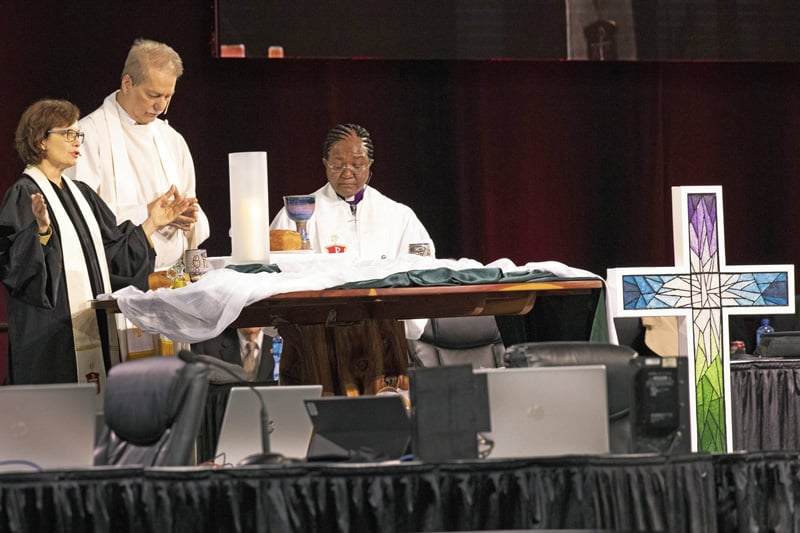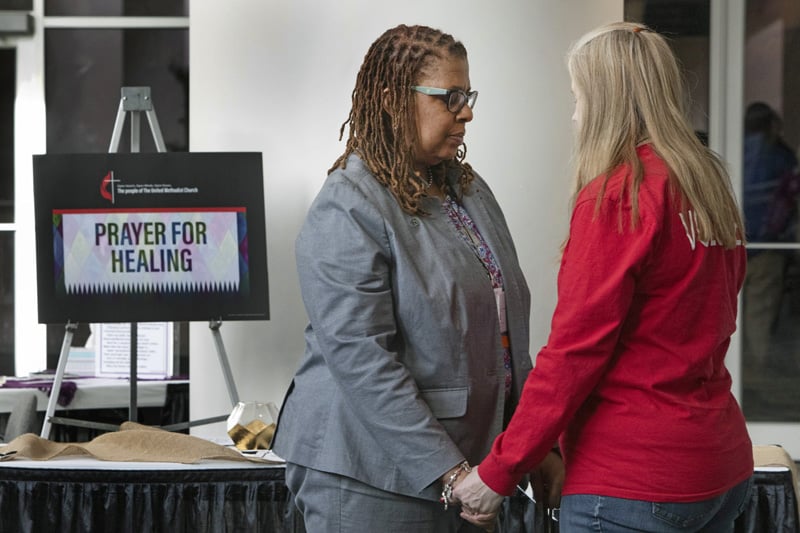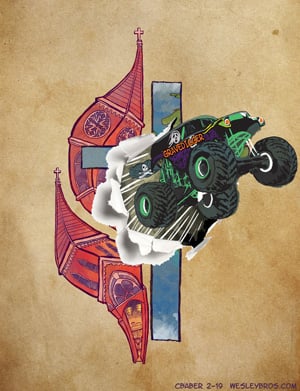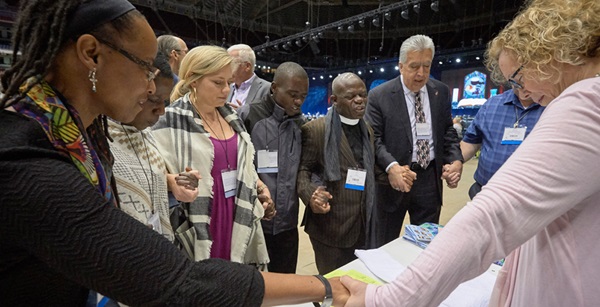At the conclusion of General Conference 2019, many United Methodists are wondering what the decisions made will mean for each of us and our congregations. Let's take a look at what we know, and what is still to be resolved.
What happened?
The global United Methodist Church met in St. Louis, Missouri, February 23-26, 2019. During the four days together, United Methodists from around the world gathered for worship, prayer, conversation and several decisions.

The Traditional Plan was passed by the 2019 Special Session of General Conference. This means our current statements about homosexuality, same-sex marriage and the ordination of LGBTQ persons have not fundamentally changed. The 2016 Book of Discipline statements are available here: Homosexuality: Full Book of Discipline statements.
The changes proposed by the Traditional Plan are mostly about ordination of LGBTQ clergy and how to resolve issues when a clergy violates our human sexuality stances by, for example, performing a same-sex marriage.
The Traditional Plan received 438 yes votes (53 percent) and 384 no votes (47 percent). Those results indicate the diversity of thought United Methodists have on these issues. This also means it is likely there are people in your church who agree with the outcome and others who do not.
A disaffiliation plan, sometimes called an "exit plan," was also passed. This provides guidelines for congregations who wish to leave The United Methodist Church "for reasons of conscience" regarding issues of human sexuality.
Who made these decisions?
The General Conference consisted of delegates elected from their annual conferences on four continents. Half of the delegates are clergypersons and half are laypersons. Bishops preside at General Conference sessions, but do not vote. The General Conference is the legislative body of the worldwide United Methodist Church.
What happens next?
Constitutionality: Before the 2019 Special Session of General Conference closed, a motion was passed (405-395) to request a decision from the Judicial Council on the constitutionality of the Traditional Plan's legislative petitions. The bishops have requested a ruling on the constitutionality of the disaffiliation plan also. These issues will be addressed by the Judicial Council when they gather in Evanston, Illinois, April 23-25, 2019.
This means that we don't yet know what will change and what will not. Anything ruled unconstitutional can be addressed at the next regularly scheduled General Conference in Minneapolis on May 5-15, 2020.

What didn't happen?
Let's clarify a couple of things.
LGBTQIA people have not been banned by The United Methodist Church. Paragraph 4 of the Book of Discipline has not been changed. It still reads, "The United Methodist Church acknowledges that all persons are of sacred worth. All persons without regard to race, color, national origin, status, or economic condition, shall be eligible to attend its worship services, participate in its programs, receive the sacraments, upon baptism be admitted as baptized members, and upon taking vows declaring the Christian faith, become professing members in any local church in the connection."
We acknowledge, however, that many LGBTQIA people, their loved ones and allies were hurt by the speeches, rhetoric and decisions of the General Conference. We pray for healing and forgiveness.
The United Methodist Church has not split. Clearly, we are not of one mind on these issues. The disagreements are deep on a number of subjects. Through it all, however, we remain one church that continues to make disciples of Jesus Christ for the transformation of the world.

Why all the talk of monster trucks?
The Special Session of General Conference was held at The Dome at America's Center in St. Louis. On the final day of General Conference, the session had to end on time to allow the staff of The Dome to prepare for a Monster Jam event that would immediately follow. Some on social media had fun imagining what might happen if General Conference was interrupted by the arrival of monster trucks. It was not a real concern.
Be sure to look at some of the wonderful ministries happening in United Methodist churches around the world by visiting our Spotlight on United Methodist Faith Stories page.
*Joe Iovino works for UMC.org at United Methodist Communications. Contact him by email or at 615-312-3733.
This story was published March 4, 2019. It is also available in Spanish.





